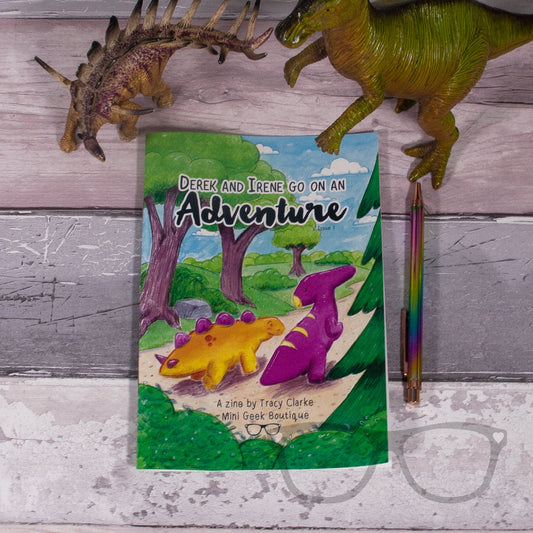
Coding Resources for kids: Benefits & Drawbacks
Share
Why Learning to Code is a Game-Changer for Mini Geeks
In today’s digital world, coding isn’t just for tech whizzes, it’s a superpower that kids of all ages can start building right now! Learning to code helps children develop problem-solving skills, creativity, and logical thinking, which are essential for many careers in the future.
The UK’s education system has embraced coding as part of the national curriculum from as early as Key Stage 1, encouraging young learners to explore programming concepts in fun, hands-on ways.
Whether your Mini Geek dreams of designing video games, building apps, or simply wants to understand how their favourite tech works, there’s a coding resource out there to spark their curiosity and keep them engaged.
Below is a list of some of the best coding platforms, including their perks and potential challenges, to help you find the perfect fit for your Mini Geek’s coding journey.

1. Minecraft Education
Website: education.minecraft.net
Benefits:
- Leverages the familiar and hugely popular Minecraft game to teach coding concepts.
- Includes lesson plans aligned with UK curriculum standards, making it perfect for school and home use.
- Offers block-based coding with Code Builder, which is great for beginners.
- Encourages creativity and collaboration in a fun environment.
Drawbacks:
- Requires a paid subscription after a free trial.
- Needs a relatively powerful device to run smoothly.
- Might be overwhelming for very young kids without guidance.
2. CodeCombat
Website: codecombat.com
Benefits:
- Uses a game-based approach where players write real code to control characters.
- Supports popular coding languages like Python and JavaScript, giving learners a real-world skill set.
- Engaging for older children and teens who want a challenge.
Drawbacks:
- Free tier is limited; full access requires a subscription.
- Can be tricky for absolute beginners without coding experience.
- Some levels may require adult help or additional learning materials.
3. Hour of Code
Website: hourofcode.com
Benefits:
- Offers free, beginner-friendly coding tutorials that take about an hour to complete.
- Wide variety of themes and activities, including Minecraft, Star Wars, and Frozen.
- Great introduction to coding for all ages with no prior experience needed.
- Supported by many UK schools and available in multiple languages.
Drawbacks:
- Short activities; good for introduction but limited for extended learning.
- Less depth for kids wanting to dive deep into coding concepts.
4. Scratch / Scratch Jr
Website: scratch.mit.edu / scratchjr.org
Benefits:
- Free and easy to access online.
- Uses block-based coding, ideal for young children and beginners.
- Scratch Jr is tailored for 5-7 year olds, Scratch is better for 8+.
- Encourages creativity through storytelling, animation, and game creation.
- Strong community with lots of shared projects for inspiration.
Drawbacks:
- May require some adult support for younger children.
- Scratch’s interface can be overwhelming for absolute beginners without guidance.
5. Blockly
Website: developers.google.com/blockly
Benefits:
- Free and open-source block-based coding tool from Google.
- Intuitive drag-and-drop interface ideal for beginners.
- Used in many educational apps, so children may encounter Blockly-based activities elsewhere.
- Helps transition from blocks to text-based coding.
Drawbacks:
- Primarily a coding tool rather than a full learning platform, so less guided lessons.
- Might need pairing with other resources to provide a full curriculum.
6. The Code Zone
Website: thecodezone.co.uk
Benefits:
- Offers a range of coding challenges and tutorials designed especially for kids and beginners.
- Includes projects that teach coding fundamentals with a fun, interactive approach.
- Suitable for use both at home and in schools in the UK.
- Focuses on key programming concepts through games and puzzles.
Drawbacks:
- Some content requires registration or a subscription for full access.
- May be less well-known than bigger platforms, so fewer community resources.
- Interface and design could feel a bit dated compared to newer sites.
Learning to code opens up a world of creativity, problem-solving, and future career opportunities for young learners. By exploring these resources, your Mini Geek can develop valuable skills that not only support their education but also prepare them for a digital future where coding is an increasingly important language.
Whether they’re interested in game design, app development, or simply understanding how technology works, starting with these beginner-friendly platforms can spark a lifelong passion and set them on the path to becoming confident digital creators.




